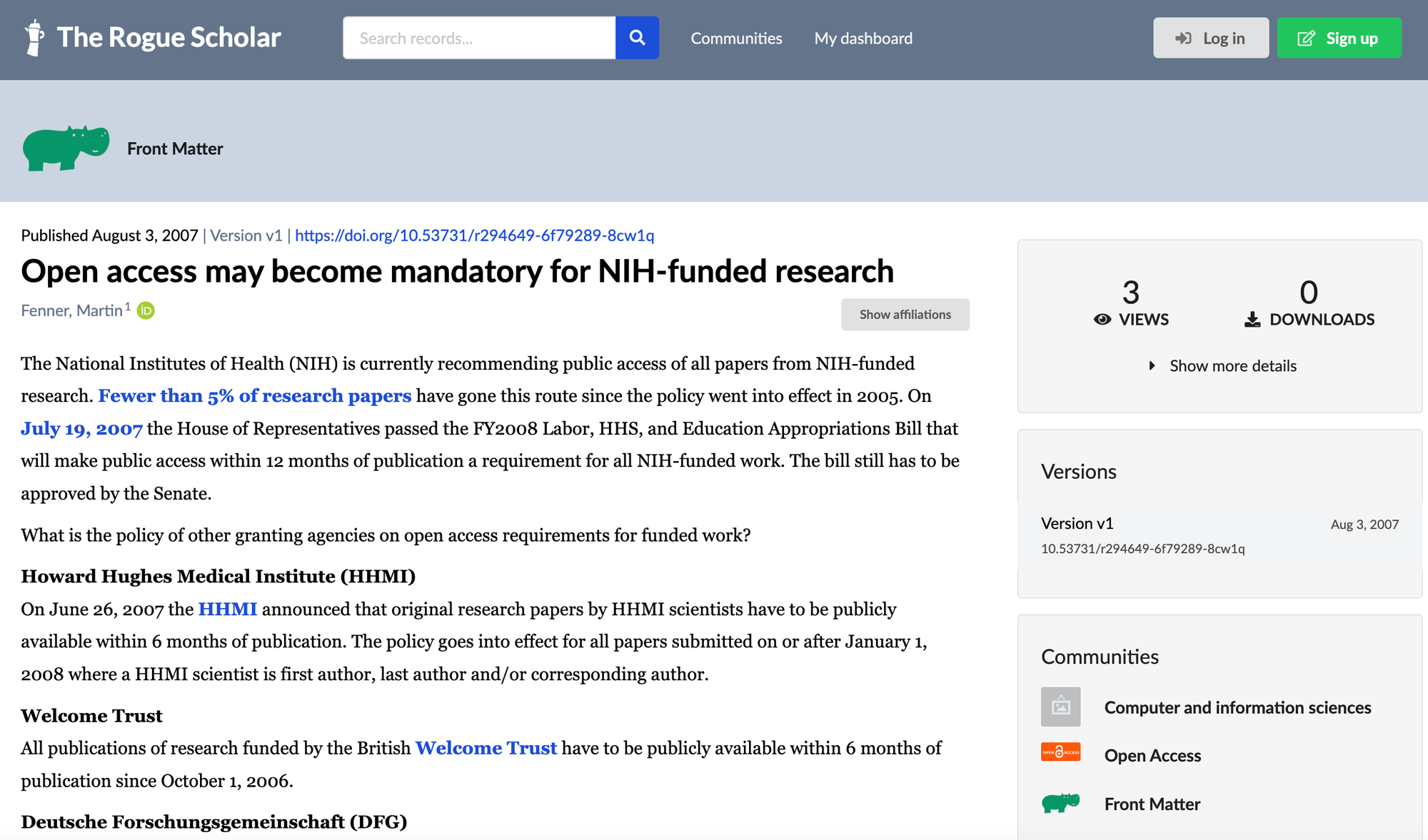
Today, the Rogue Scholar science blog archive launched an important new feature: showing the full-text content (in addition to metadata) of all participating blogs on blog post pages. Rogue Scholar has always stored the full-text internally and made it available via the REST API, as the full-text is needed for archiving and full-text search.



.png)

